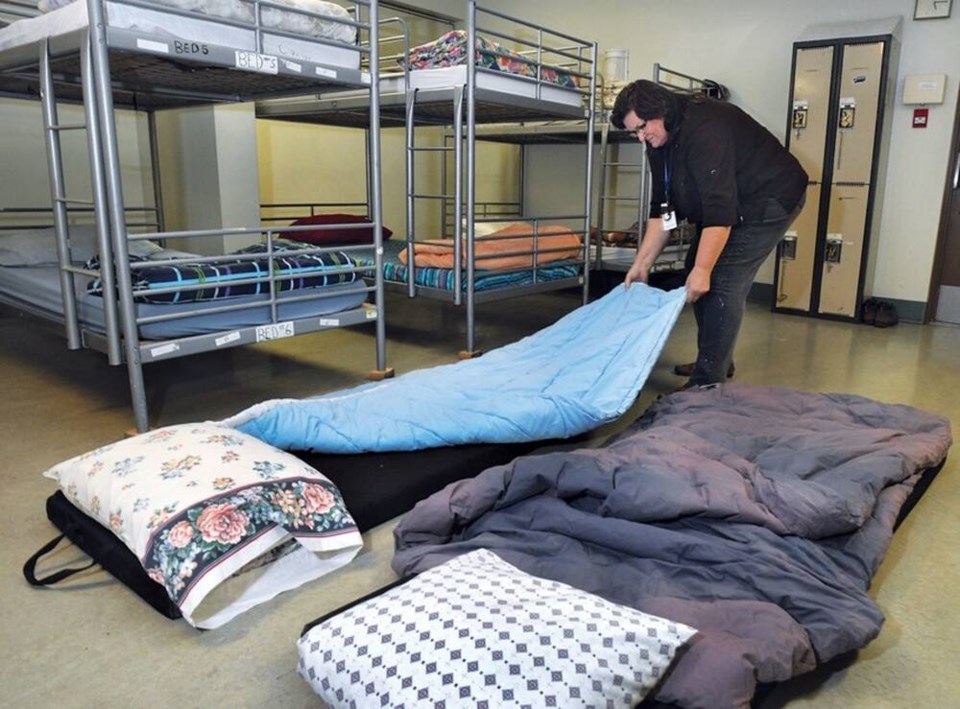With snow and frigid temperatures blanketing the North Shore this week, Lookout Housing and Health Society is providing some relief for those with no place to go over the holiday season.
Lookout, which operates the North Shore’s primary emergency housing shelter at 705 Second Street West in North Vancouver, opened its extreme weather shelter program last month at North Shore Neighbourhood House at 225 Second Street East.
So far, this month, there have been an average of 10 or 11 people coming in from the cold to sleep at Neighbourhood House, each night, said Jana Sasaki, director of operations for the Vancouver region of the Lookout Society’s operations.
The emergency shelter at Neighbourhood House has only been at capacity – 16 mats – once this month, said Sasaki. But if needed, another 10 mats will be made available at the shelter’s main location.
The extreme weather program, staffed by the Lookout society and funded by BC Housing from mid-October to mid-April, is focused on getting people inside for the night in the coldest weather. The program also provides a hot meal and attempts to connect those who use it with further services.
Environment Canada was predicting a meteorological mélange of challenging weather between Thursday night and the end of the weekend, including heavy snow, strong winds, and freezing rain before temperatures are expected to warm up between Christmas and New Year’s.
Overnight Wednesday, Dec. 21, West Vancouver recorded a low of -11.8 C.
Sasaki said it’s concerning to think of people spending the night outside in such temperatures.
Through a partnership with local municipalities and First Nations governments, three additional outreach workers have been added to the regular outreach worker at the shelter, who are regularly checking on people and encouraging them to come into the shelter, she said.
The people who need shelter might be camping in parks, beaches or in the bush on the outskirts of North Shore communities, or they might be living out of their cars if they have one and they can’t find anywhere else to live.
Sometimes people aren’t aware the shelter is available.
Sometimes people are resistant to coming in, said Sasaki, because of stigma or bad experiences in the past.
For those who can be convinced, however, “There is shelter,” she said. “There is space.”
While acknowledging that the holiday season can be traumatic for some people, Sasaki said the shelter does hold a general holiday celebration, with a meal that’s a bit more celebratory and gifts for those staying at the shelter.
Donations, especially of cold weather clothing in good condition – socks, mittens, hats – are always welcome, she said.
Lookout is currently also accepting donations of new clothing, bus tickets, gift cards, toiletries and backpacks that it gives to clients over the holiday season. Lightly used blankets and warm coats are also welcome, along with blank Christmas cards that the society hands out with stamps so that people staying at the shelter can reconnect with family.



